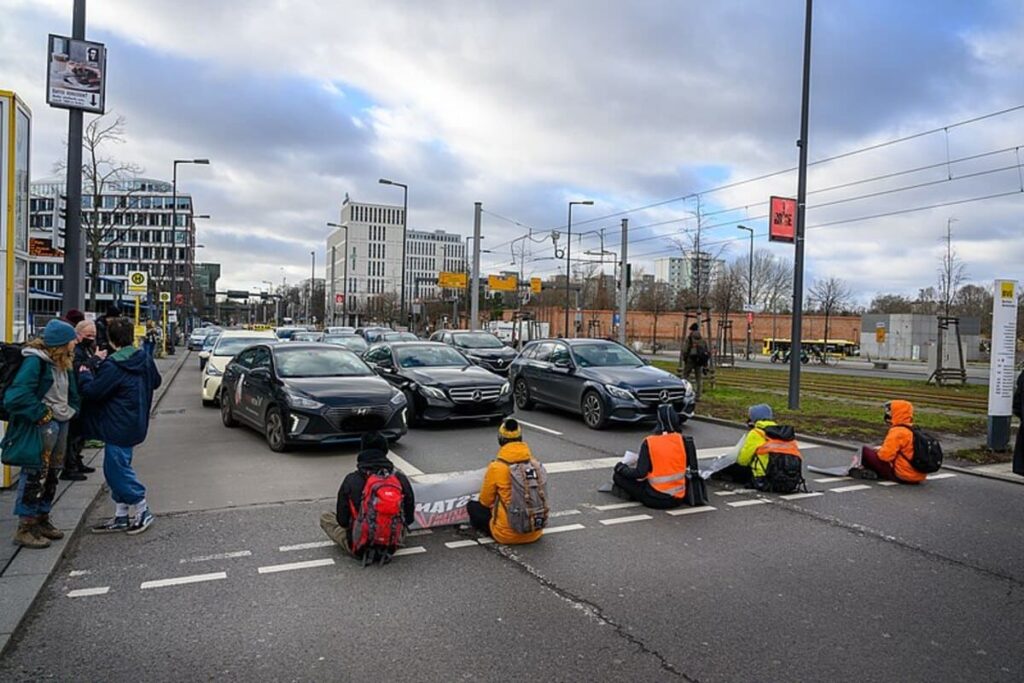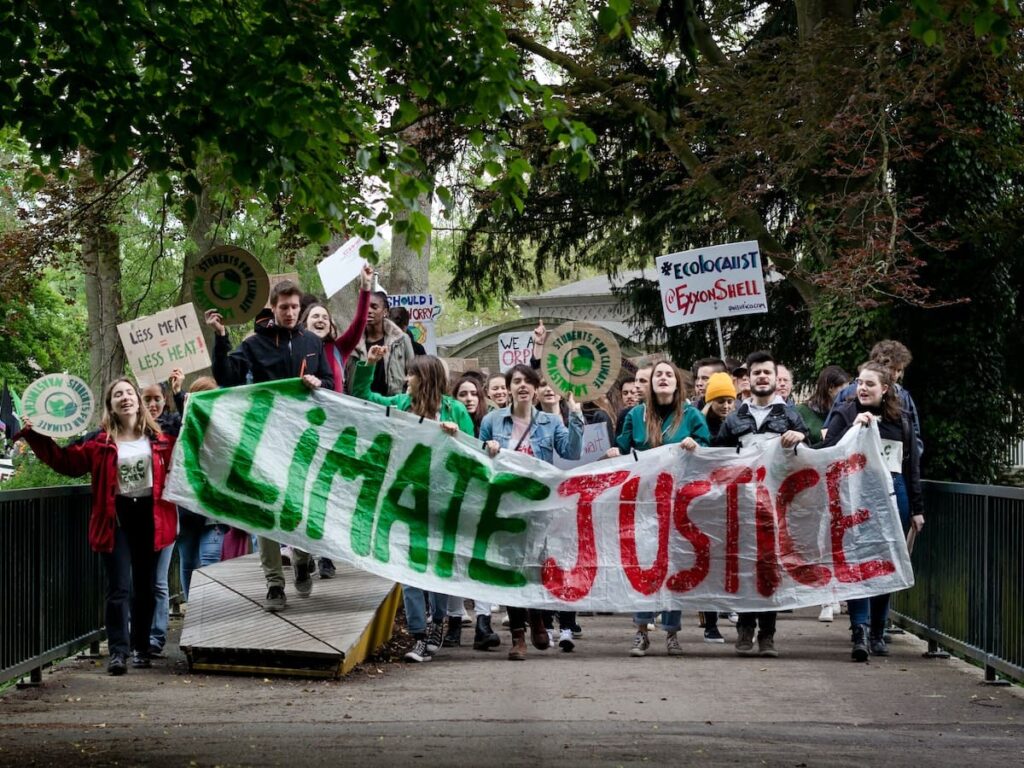Climate activism has been an intensely debated topic recently. Critics argue that climate activists do not pick the right methods to fight climate change. Some mention that it isn´t helpful to throw soup at Van Gogh’s art or to perform sitting blockades on the street. Others object, that radical forms of climate activism harm the cause and people will get mad at the whole climate change topic. To shed some light on this heated debate, I´d like to discuss the effectiveness of climate activism. For this purpose, I asked a climate activist about the role of activism in changing societal perceptions and putting pressure on policymakers. Do we need climate activism to solve the climate crisis and what are its effects?
Why is climate action important?
The promises of politicians from many countries give the impression that the necessary measures are already being taken to mitigate climate change as best as possible. However, more than 80% of our energy still comes from fossil fuels and CO2 concentrations in our atmosphere are rising faster than before.
Current climate modelling points to three degrees of global warming. According to scientists, the warming of our planet will have unforeseen consequences for all ecosystems and human life on Earth. You can take a quick peek at the effects of three degrees global warming in the video below.
Arguments against climate change action?
Reinhard Steurer is a scientist at the University of Life Science in Vienna. In his lecture, Steurer calls climate change a societal failure. He speaks of societal powerlessness and says that society is overtaxed to do the right thing in the long term. According to Steurer, four things are to blame for this social impotence to address climate change sufficiently: denial, rationalization, repression, and doing as if. By denial, he means the belief that climate change is not man-made or won´t be a problem for humanity. Rationalization refers to the arguments undermining important climate actions as unnecessary or damaging. An example of rationalization is the argument that innovation will solve climate crisis in the future. Steurer says that we have all technologies necessary to solve the climate crisis, we only need to implement them.
Furthermore, Steurer points out that doing as-if is becoming a huge problem. For example, Austria has pledged to become climate neutral until 2040. However, data shows that with current measurements, we´ll not reach climate neutrality until 2100. Steurer is engaging as one of the scientists against climate change and supports climate change activists in Vienna. He says that we need Empowerment instead of societal powerlessness and claims that there are different ways to do so. Consequently, climate activism can be one way to empower society against climate change, according to Steurer.
Why is climate activism important?
In order to comprehend climate activism and its effects better, I had a conversation with Lorenz Trattner, a key figure in Austria’s Letzte Generation (translated Last Generation) climate movement. Their goal is to create pressure on politicians to implement adequate climate protection. For this reason, Letzte Generation performs civil disobedience in the form of sit-in blockades or Slow Marches.

During the sitting blockades members of Letzte Generation sometimes fix themselves to the street, therefore causing considerable media attention and receiving much criticism. To demonstrate the importance of civil disobedience, Trattner argues that this way of protesting allows few people to cause a huge impact. The reason for this is the way civil disobedience attires attention and provokes discussion. According to Trattner, the goal isn´t to convince the majority of their protest but to reach social tipping points. By this, he means that the disturbance of civil disobedience needs to be high enough so that politicians can´t overlook the demands of climate activists. Trattner argues that only a small societal percentage needs to stand behind the environmental movement to reach an overall consciousness for the cause. He refers to the 1960s civil rights movement, which won significant triumphs against racism toward African Americans.
Conclusion
In conclusion, climate change activists aim to change societal perceptions and put pressure on policymakers to implement adequate climate protection. Climate activism and its effects are highly debated, with critics questioning the effectiveness of the methods used. However, activists believe disruptive actions can create social tipping points and consciousness for the cause, referencing past movements’ successes. The urgency for climate action remains, due to economic reliance on fossil fuels and rising CO2 concentrations in the atmosphere. Moreover, denial, rationalization, repression, and “doing as if” contribute to societal powerlessness and mitigate the implementation of necessary technologies in politics. What is your opinion? Do you think climate activism is a good way to empower society against climate change?
Subscribe in the box below, to receive new post straight to your inbox. 🙂

 To provide scientific knowledge on this site for free means a lot to me. However, researching and writing costs me a lot of time. Since I´m a student, financial support for my blog post helps me to maintain scientific quality.
To provide scientific knowledge on this site for free means a lot to me. However, researching and writing costs me a lot of time. Since I´m a student, financial support for my blog post helps me to maintain scientific quality.
I really enjoyed reading this post. It’s very informative and well researched. I also like that you linked an article and a video for further information. I look forward to the next posts!!